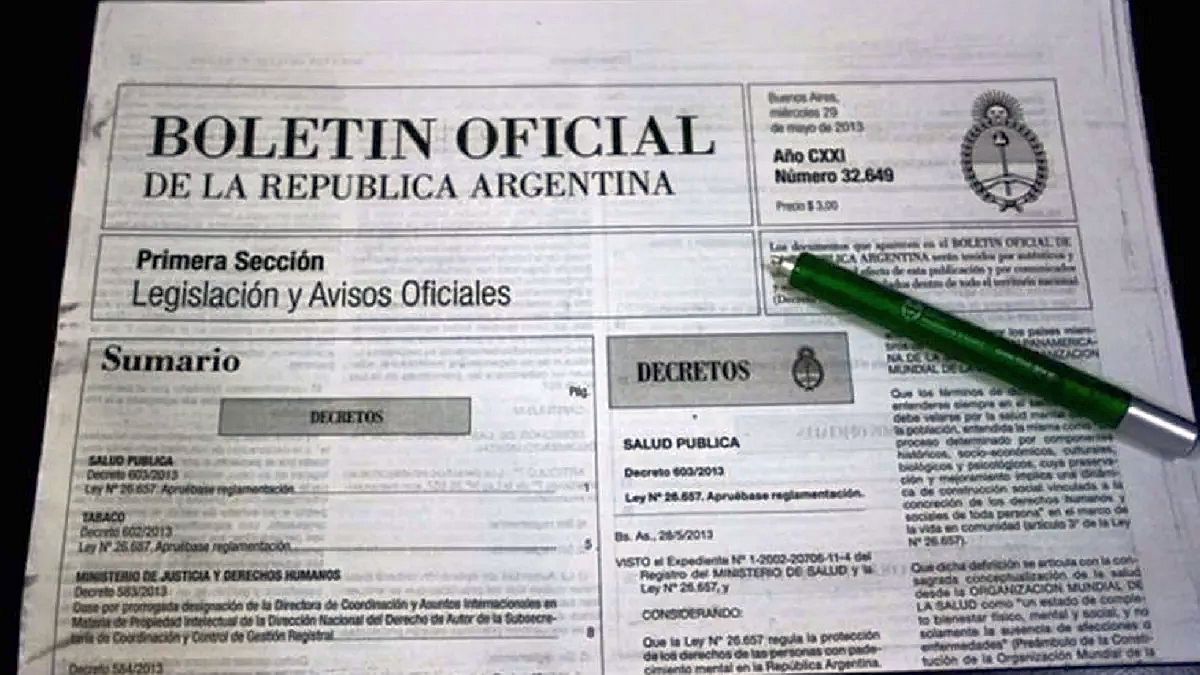Let us first remember that, in tax matters, taking into account the nature of tax obligations, the principle of reserve or legality governs, an area in which our National Constitution imposes its application in arts. 4, 17, 52 and 75, paragraphs 1 and 2. (2)
This implies that no tax burden can be enforceable without the preexistence of a legal provision framed within the constitutional precepts and requirements, that is, validly created by the sole power of the State invested with such powers.(3)
This creation of the norm culminates in the promulgation stage, the act with which the project becomes law. Furthermore, every project that emanates from a legislative body requires, once promulgated, the corresponding official publication.
The collection of advertising is extensible to municipal ordinances. This conclusion is imposed by the materially legislative character that, in their scope, these norms assume, insofar as they “…emanate from a governing body elected by popular suffrage”… being “like the law, a ‘sovereign’ expression of the popular will, of the organized community will” (4)
Publication of tax ordinances
In the following paragraphs we will address this issue regarding the publication of tax ordinances based on a new ruling issued by the Supreme Court of Justice of the Nation on 8/20/24.(5)
In this case, the company “Telecom Personal SA” claimed the infringement of its right to defense based on the lack of publication of regulations on which the Municipality of Roldán (province of Santa Fe) based its tax claim.
The Second Administrative Litigation Chamber of Rosario declared the administrative litigation appeal filed in the case inadmissible, a ruling against which the company filed an appeal of unconstitutionality before the Supreme Court of Justice of the province of Santa Fe.
The Santa Fe Court rejected the complaint for denial of the unconstitutionality appeal filed by Telecom Personal SA, limiting itself to holding that: “… the Court (in reference to the Chamber) analyzed that the ruling of the National High Court invoked by the plaintiff (“Municipality of Berazategui”, dated September 27, 2018), was not simply transferable to the reality of the case that exhibited legal and factual aspects that were unique and different from those that could have arisen in other actions, without it being possible to overlook that the Judges highlighted that the Municipality notified the company of Municipal Ordinances 524/07 and 528/07 and that ‘… already with the substantiation of the previous files between the same parties here contending, the company can hardly say that it does not know the entire text of the aforementioned ordinances, especially when the voluminous piece of the lawsuit includes “It details a thorough knowledge of its provisions” (pages 22v./23), and the appellant – with its generic allegations and the jurisprudence it invokes – failed to shake the proven existence of full knowledge of the regulations in question.”
In response, the company filed the appeal that we are analyzing here.
Appeal in fact
In the opinion of the Attorney before the CSJN, such explanation of the Court of Santa Fe shows that the appealed ruling is based on dogmatic statements, without legal support to resolve a controversial point of law, by not analyzing the specific circumstances of the case and the specifics of the applicable legislation, as well as the arguments of the company that were conducive to the resolution of the dispute.(6)
This is the opinion of the ruling court because, first of all, the appealed court briefly states that the jurisprudence of the national Court, on which the company based its right, is not applicable to the present case (by maintaining that here there are “own and distinguishable legal and factual aspects”), but it does not even mention the extremes that would justify the departure from the doctrine of the Court.
More specifically, the Attorney General does not see the aforementioned factual differences nor does she find the issue discussed there dissimilar to the one raised here. On the contrary, she understands that, both in that case and in the present case, the proper publication of municipal ordinances establishing taxes is being discussed.
This was stated by the appellant before the different instances – administrative and judicial – and also when filing its extraordinary appeal, stating: “what truly harms the company is not the specific knowledge of the ordinances in question, which may or may not have come to be known by indirect means (which did not occur in a timely manner in the present case) or by the processing of a file after the occurrence of the fiscal periods claimed, but rather the fact that the judgment fails to respond to an essential question: the lack of publication of an ordinance.”
Under these conditions, the Court considers that the federal grievances duly introduced by the appellant, based on the lack of valid official publication of the ordinances establishing the tax claimed here, have not been addressed in the present case, a requirement that, as stated, is rooted in arts. 4°, 17, 52, 75, paragraphs 1° and 2°, of the National Constitution, by virtue of the fact that the principle of reservation of law in tax matters is set forth therein. (7)
Following the opinion of the Attorney General’s Office, we consider it appropriate to clarify the merits of the case, in interrogative mode: if such ordinances had been notified to the company personally, or if it had become aware of the content of the regulations based on the existence of other judicial files between the parties, whether prior to or subsequent to the fiscal periods discussed here, would this not satisfy the requirement of official publication?
In this regard, the Attorney General explains that, beyond the fact that such diligence (personal notification) has actually been fulfilled (something that the plaintiff denies), this cannot compensate for the lack of valid official publication of the ordinance that establishes the tax based on the constitutional precepts indicated above.
And it adds that, with respect to the knowledge of the content of the regulations based on the existence of other judicial files between the parties, the “complete knowledge” of the provisions in question, which the appealed court infers from the presentations made by the company in other judicial processes, also does not compensate for the absence of official publication required for regulations that establish taxes.
Revocation of judgment
In summary, sharing the arguments of the Attorney General, the National Court upholds the complaint, declares the extraordinary appeal filed by Telecom Personal SA admissible, and revokes the appealed judgment, with costs, ordering the return of the proceedings to the court of origin so that a new ruling may be issued by whomever is appropriate in accordance with the above.
Public accountant. Tributary.
(1) Ruling CSJN LOMA DEL PILA SRL v COMUNA DE HUASA PAMPA s/unconstitutionality; 10/14/21
(2) Failures: 312:912,
(3) Errors: 316:2329; 318:1154; 319:3400; 321:366; 323:240; 346:441.
(4) Rulings: 312:1394; “Municipality of Berazategui”, Rulings: 341:1246, vote of Judge Rosatti.
(5) “Telecom Personal SA v. Municipality of Roldán s/contentious administrative appeal”.
(6) arg. of Fallos: 298:317 and 301:265, among others.
(7) Errors: 312:912; 318:1154; 319:3400; 321:366; 326:3168, among others.
Source: Ambito
I am Pierce Boyd, a driven and ambitious professional working in the news industry. I have been writing for 24 Hours Worlds for over five years, specializing in sports section coverage. During my tenure at the publication, I have built an impressive portfolio of articles that has earned me a reputation as an experienced journalist and content creator.




